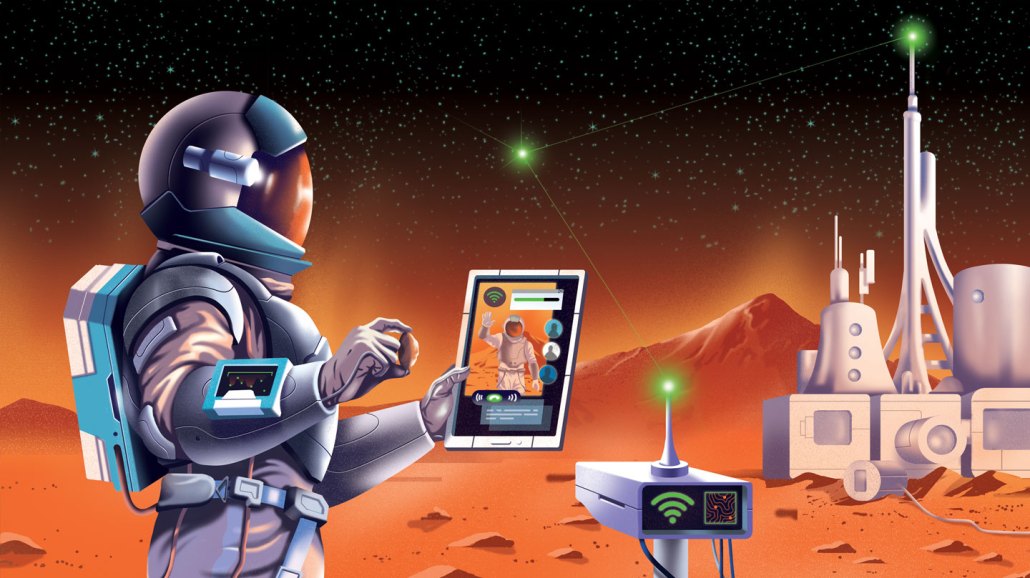Questions for ‘Here’s how to build an internet on Mars’

Today's communications infrastructure couldn't support the needs of future Mars inhabitants.
GLENN HARVEY
Share this:
- Share via email (Opens in new window) Email
- Click to share on Facebook (Opens in new window) Facebook
- Click to share on X (Opens in new window) X
- Click to share on Pinterest (Opens in new window) Pinterest
- Click to share on Reddit (Opens in new window) Reddit
- Share to Google Classroom (Opens in new window) Google Classroom
- Click to print (Opens in new window) Print
To accompany ‘Here’s how to build an internet on Mars’
SCIENCE
Before Reading:
- Imagine you are a future astronaut living on Mars for one year. How important would it be for you to be able to access Earth’s internet? Explain how having access to the internet would impact your stay on Mars.
- Energy travels through space in the form of radiation. Examples of radiation include X-rays, visible light and radio waves. Radiation types differ in three primary ways: wavelength, frequency and energy. Refer to this short explainer about electromagnetic radiation to answer the following questions. Which of the three radiation types listed above has the highest energy? Which has the highest frequency? Which has the longest wavelength? As wavelength increases, does frequency increase, decrease or remain the same?
During Reading:
- The distance between Earth and Mars varies depending on where the planets are in their respective orbits. Briefly describe the distance range in kilometers.
- How many minutes would it take for data traveling at the speed of light to travel from Earth to Mars? Provide your answer as a range.
- What is the “solar conjunction”?
- Why would solar conjunctions cause communication problems for people living on Mars?
- Describe the two types of data that NASA’s Perseverance rover sends and receives.
- How many orbiters make up the Mars Relay Network?
- What does the acronym MARCONI stand for? What is the goal of MARCONI?
- What is a potential advantage of using optical rather than radio waves for Earth-Mars communication? What would be a likely drawback?
- What is the goal of NASA’s Artemis project?
After Reading:
- Consider everyday problems you might encounter today when using the internet, on your cell phone or other communication technologies. What is one everyday problem that you would likely encounter on Mars? What is one problem that would be unique to Mars? Based on your reading, what is one potential way humans might overcome such a problem?
- Based on your reading, how do radio and optical waves differ in their ability to fan out as they move through space? Consider how this difference may help explain why radio stations on Earth broadcast information using radio waves rather than optical waves. What problem would a radio station encounter if it tried to use optical waves to broadcast music?